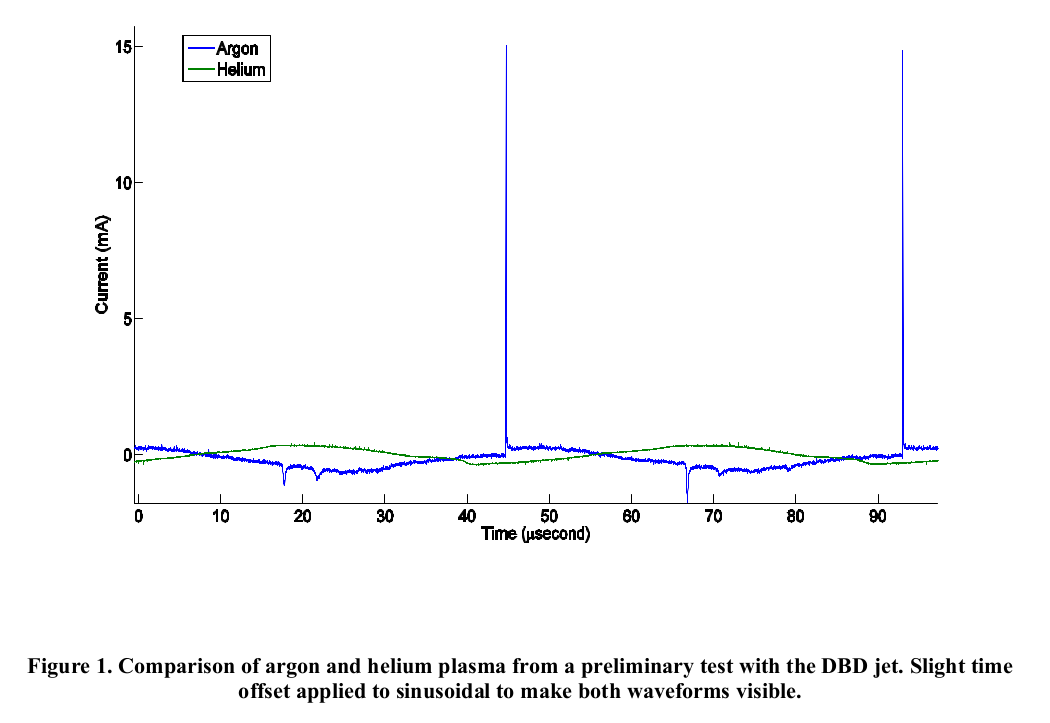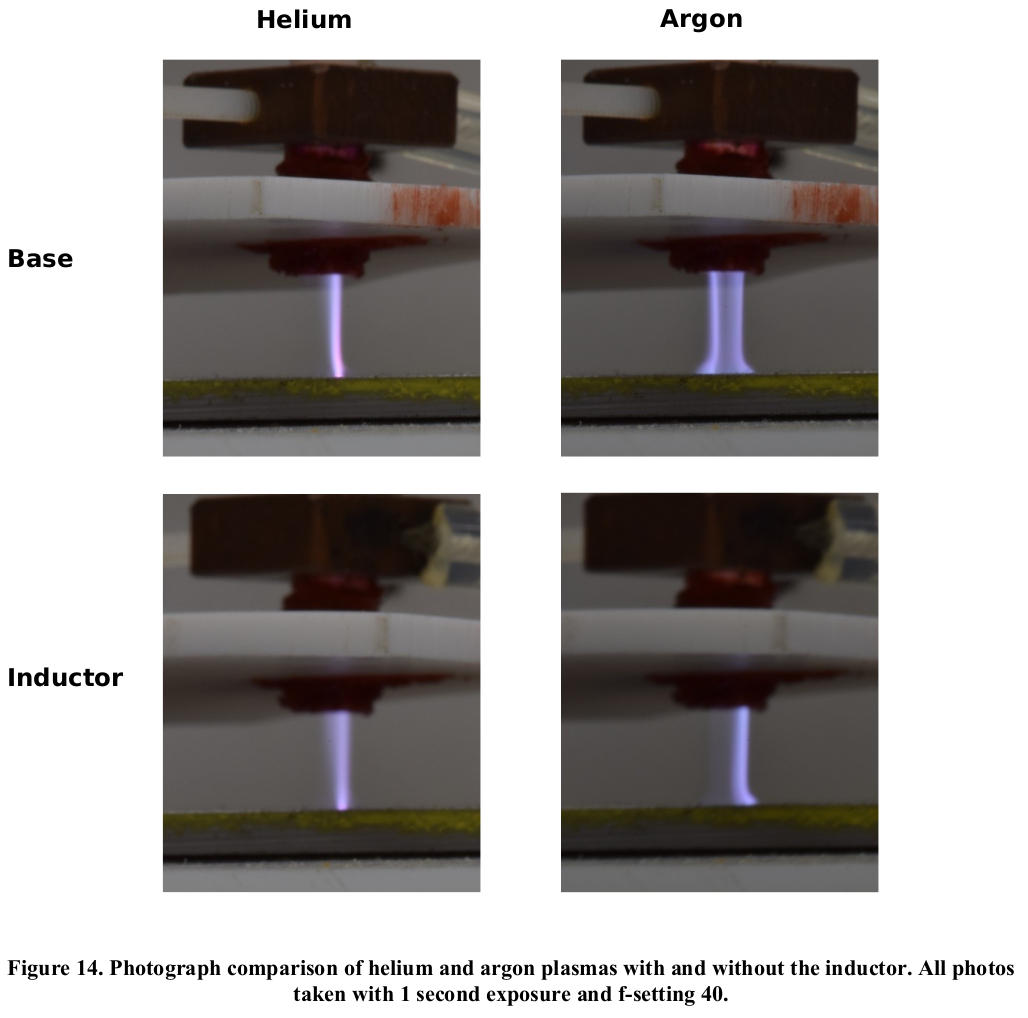Jack B. Reid
jack@jackbreid.com
Github profile: jackreid Hosted on GitHub Pages — Theme by mattgraham
Non-Thermal Plasma
Over the course of my undergraduate, I worked on a number of different research projects for different groups (see the CV page for a complete list). The group that I spent the most time with and ultimately wrote my senior thesis in, was Prof. David Staack’s Plasma Engineering Diagnostics Laboratory (PEDL). Over the course of a couple of years, I worked on four different projects, all of which involved the generation of non-thermal (i.e. made by electricity rather than heat) plasma, often using dielectric barrier discharge jets. One of these projects was for the US Army Research Lab and falls under ITAR restrictions, so thus I don’t talk about it here. I can say that is was an extension of the work described in this paper. The other three projects are described below.
Insulated Teflon Handle for a Dielectric Barrier Discharge Jet
Spring 2013
Non-thermal plasmas, particularly helium, are being experimented with for simultaneously sterilizing wounds and applying a thin polymer film (i.e. a bandage). Obviously the medical practioner (and a university researcher) needs a way to safely handle and manipulate the plasma jet without shocking themselves. My first project at PEDL was designing and machining and insulated handle that would allow us to do precisely that.
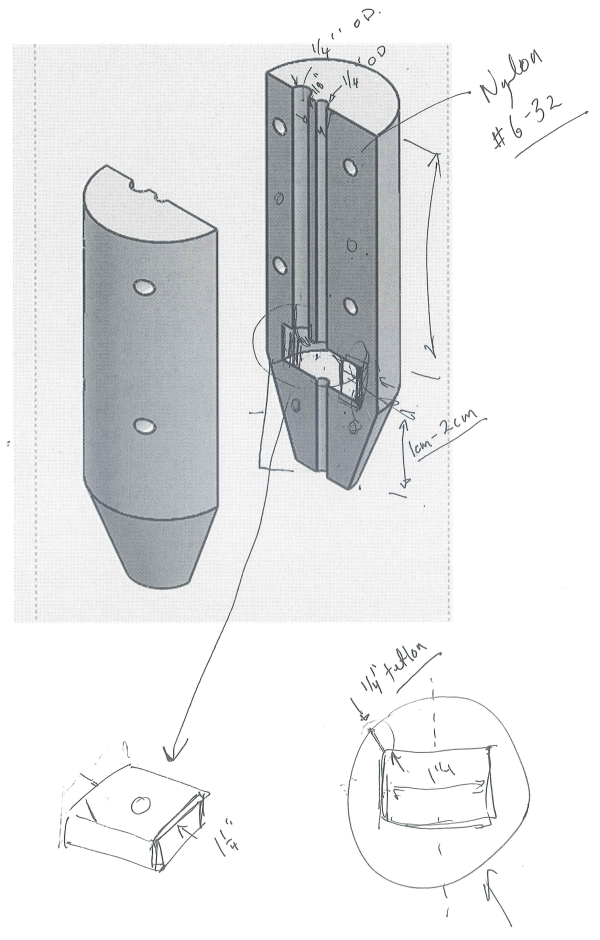
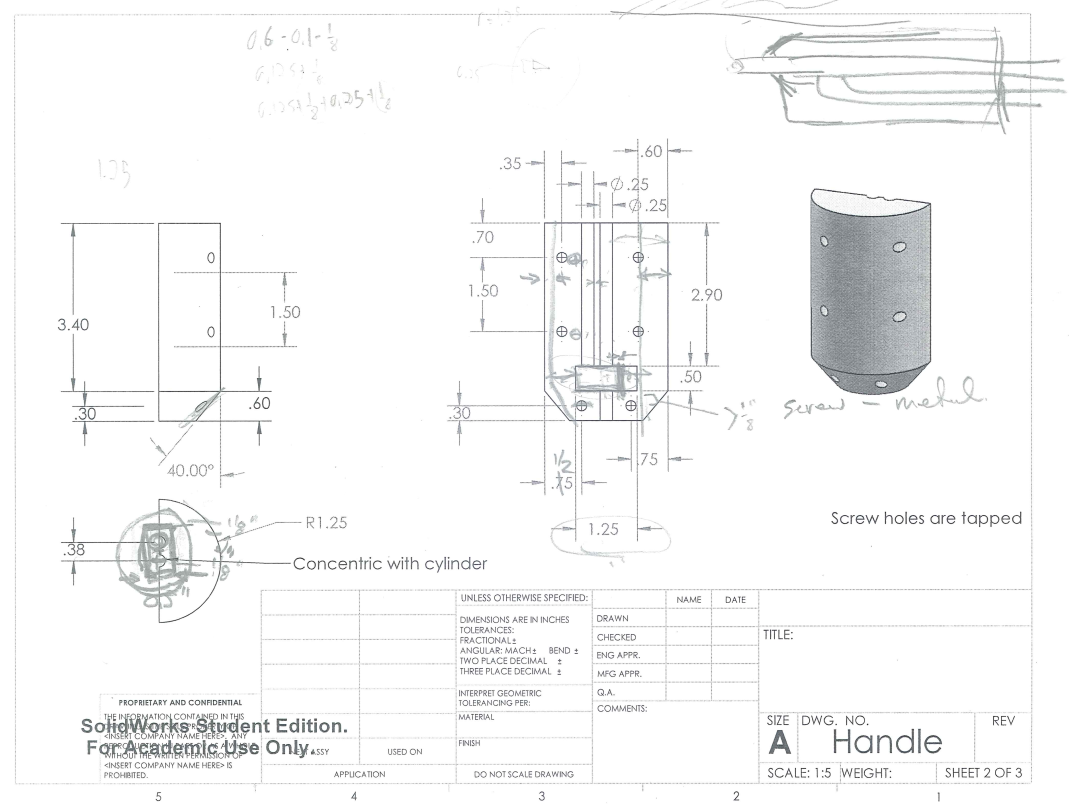
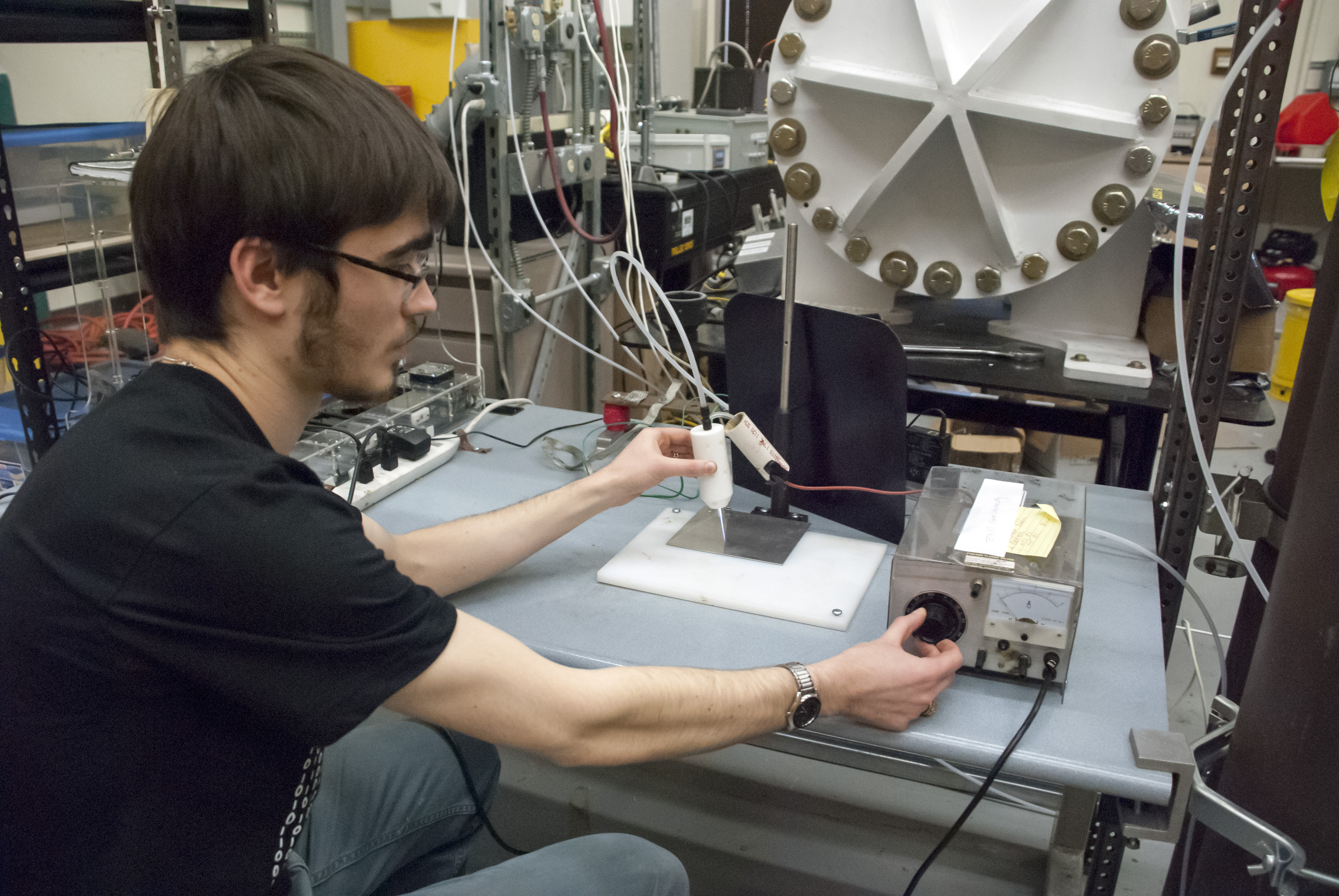
Plasma Air Sterilizer
Fall 2013
In addition to sterilizing surfaces, we wanted to see if non-thermal plasmas could be used to sterilize airflows to cut down on airborne contagions like Legionnaires’ disease. To this end, I worked with Prof. Maria King to build and test a tube could generate a sheet of plasma. We then aerosolized E. Coli, passed it through, and then cultured the results to see what fraction had been sterilized. This was the first (and probably last time) that I was a genuine white-coated scientist growing things in trays. Amusingly enough, it was also the site of my worst lab injury, when I stupidly tried to reach across the active device and burned a circular whole through my thumbnail.

Undergrad Thesis: Argon Current Spike Minimization
Spring 2013 - Spring 2015
As I mentioned above, helium is the primary working gas used for non-thermal plasmas in medical applications. This is primarily because helium doesn’t hurt while many other gases, like the much cheaper argon, exhibit current spikes that can be quite painful. My project was thus to see if I could adjust the circuit to minimize these spikes and reduce the induced pain without significantly impacting the efficiency of the plasma. The obvious way to do this was to put an inductor in series with the dielectric barrier discharge jet that would resist sudden changes in current. This project formed the basis of my undergraduate thesis, which is available on A&M’s repository, OAKTrust.
